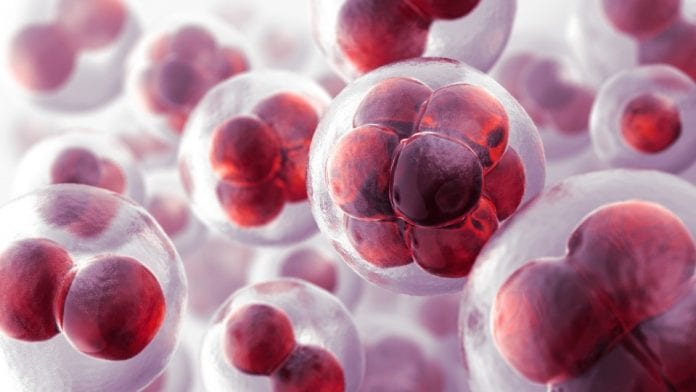
Indian scientists have designed a new class of synthetic peptide which has the potential to block the entry of the SARS-COV-2 virus into human cells.Peptides have the ability to clot Virion Covid-19 (virus particles) together, thereby reducing their ability to infect cells.Development came when the period of periodic outbreaks from Covid-19 reported in several parts of the country, increasing fears of re-gathering some of the old restrictions observed for two consecutive locks in 2020 and 2021.When the Indian vaccination program is ready to touch the 200 crore sign, this new approach promises alternative mechanisms to make viruses such as SARS-COV-2 inactive, giving a new peptide class as an antivirus.
In addition, the rapid appearance of the new type of coronavirus has the potential to reduce the protection offered by the Covid-19 vaccine, calling for a new approach to prevent infection by viruses.Considering the need to increase immune protection, the Modi government has announced a free amplifier shot for everyone over the age of 18 for 75 days. The broad part of this category has received two vaccine doses.
How does synthetic peptide work?
It is known that protein-protein interactions are often like locks and keys. This interaction can be hampered by synthetic peptides that imitate, compete, and prevent the ‘key’ of binding to ‘keys’, or vice versa. The newly designed synthetic peptide will work on the same principle.Scientists at the Indian Institute of Science (IISC), in collaboration with researchers from the CSIR-Institute of Microbial Technology, have used this approach to designing peptides that can bind and block the protein of the surge on the surface of the SARS-COV-2 virus, stating the Ministry of Science & Technology.
“Peptides that are designed are helical, shaped hairpin, each is able to pair up with other types, forming what is known as dimer. Every time the ‘bundle’ presents two ‘faces’ to interact with two target molecules. In a study published at Nature Chemical Biology, researchers hypothesized that both faces will bind two separate target proteins that lock fourth in the complex and block the target actions, “the statement said.Research that solves the pathway supported under Covid-19 Irpha cells (research intensification in high priority areas) from the Science and Engineering Research Council (Serb), Legal Entity of the Department of Science and Technology (DST), the statement was added.
Indian scientists who work on the project decided to test their hypotheses by using peptides called SIH-5 to target the interaction between protein spike (s) SARS-COV-2 and Ace2 protein, SARS-COV-2 receptors in human cellsWhen hamsters are given a dose of peptide and then exposed to high doses of SARS-COV-2, they show a decrease in viral load and less cell damage in the lungs compared to hamsters that are only exposed to viruses, showing the ability of peptides to act as antivirus.
“Peptida Sih-5 is designed to block the binding of RBD to ACE2 humans. When Dimer Sih-5 found S protein, one of his faces was tightly bound to one of the three RBDs in the S protein trimer, and the other face was bound to the RBD of different S protein. ‘Cross-linking’ allows Sih-5 to block both S protein simultaneously. Under Cryo-Em, S protein targeted by SIH-5 seems to be installed head-to-head, and surge protein is forced to form dimers. Furthermore, the researchers showed that SIH-5 deactivated the virus efficiently by cross-binding a surge protein from different virus particles, “said the statement of the Ministry of Science & Technology.
The Indian research team believes that with small modifications and peptide engineering, this lab’s mini protein can inhibit the interactions of other proteins as well.Research that solves the pathway supported under Covid-19 Irpha cells (research intensification in high priority areas) from the Science and Engineering Research Council (Serb), Legal Entity of the Department of Science and Technology (DST), the statement was added.The findings of Indian scientists have been published in Nature Magazine.Further studies are ongoing and the next stage of development is expected to provide new protection methods from Covid-19, in addition to the existing treatment and vaccination systems, scientists said.


